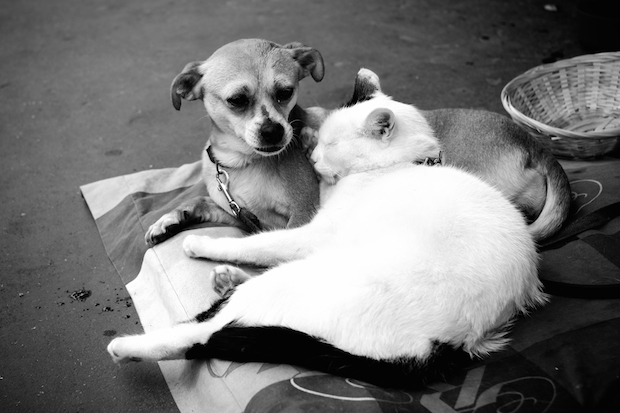From The Spectator, 17 September 1914:
THE long periods of darkness and absence of all direct news which add to the gloom of this war are illuminated by the flashlights of soldiers’ letters. Letters of the deepest interest have, as we all know, enthralled public attention; but these are of course picked letters. The letters and postcards which come from the mass of soldiers tell nothing of general interest, nothing which could enable any one to picture any corner of the great war, or to share any of the emotions which must possess the souls of those firing and under fire. No hint of patriotic purpose finds expression in them; battle, murder, and sudden death are hardly alluded to, much less described, by the men in their midst; and the golden illusion of glory is not so much as named. For the most part they might be written from the seaside. The writers are quite well, and they hope those at home are quite well, especially the baby. They are “doing well ” also—a phrase which may mean that the Allies are advancing, or that the food is good. They hope that those at home are ” getting their money,” and that is all. A printed form saying : “Don’t you worry about me; I am all right, and hope you are,” would to the person outside the soldier’s family tell as much as his letters do, either of himself or of the situation.
So far as the war is concerned, the anxiety of those at home is greatly mitigated by the fact universally believed among the women that men have some sort of liking for war, while their womenfolk all express the utmost horror of it. “He was wild to go,” or ” glad to go,” or “willing to go.” These are the three grades of satisfaction always imputed to those who have chosen to bear arms, and certainly there is nothing in their written words to destroy the theory. It is, we think, undoubted that the feeling for children among the sort of people whose letters we have been speaking of is stronger than that between husband and wife. All the women who describe the momentous leave-taking speak of the father’s distress at leaving his children and of his turning back to speak again to them. Not that the last thought need be the most solicitous. The writer was amused by one such description in which the last word seemed to be for the dog. “Hold on to ‘Flossie’ if you can,” he said. ‘Flossie’ is a very peculiar-looking animal, and so far as stealing goes there will, we imagine, be no difficulty in holding on to her. She has the coat, colouring, and outline of a collie; on the other hand, she is hardly bigger than a fox terrier, and her legs are so short as to suggest a German strain in her blood; but, like all the best-beloved dogs, she reads the mind of her master and mistress, shares their every prejudice, and expresses their feelings more openly than is wise. Rent- collectors and deputy-landlords are not popular people, and ‘Flossie’ would like to exterminate them. Herein lies her danger. She cannot restrain a sympathetic impulse to snap at the family enemies. Pets take a very large place in life just now among both rich and poor. “The children miss him dreadfully,” said the wife of a soldier the other day, lamenting her husband’s departure for the front. Then, as a large cat rose from the hearth and looked abstractedly about the room, she added, “Even the cat misses her father.”





Comments